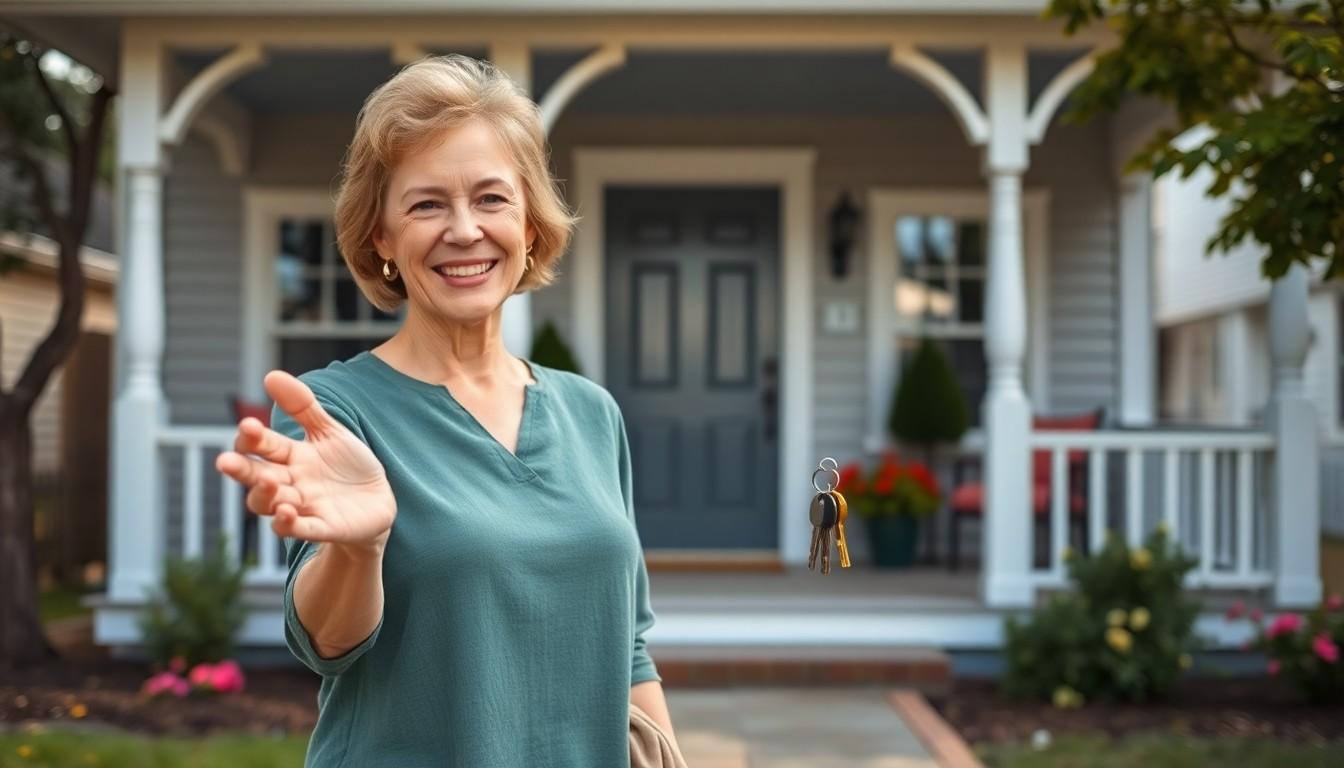When it comes to finding a place to live, navigating the rental market can feel like a wild goose chase. Enter the private landlord—your not-so-secret weapon in the quest for the perfect home. Unlike large property management companies, private landlords manage their own properties and often bring a personal touch to the rental experience. They might not have a fancy office or a team of assistants, but they’ve got something even better: flexibility and a willingness to negotiate.
Private landlords can be a breath of fresh air in a world of cookie-cutter apartments and rigid rental agreements. Whether it’s a cozy studio or a charming cottage, they often offer unique properties that reflect their personality. So, if you’re tired of dealing with faceless corporations and want to make your rental experience a bit more personal, it’s time to discover what a private landlord can do for you.
Table of Contents
ToggleUnderstanding Private Landlords
Private landlords manage rental properties independently. They typically own the units they rent out and directly interact with tenants.
Definition of a Private Landlord
A private landlord is an individual or entity that rents out property without the involvement of large property management companies. Often, these landlords maintain a smaller portfolio, which allows for a more personal and flexible leasing experience. They may own single-family homes, apartment units, or other types of residential properties. Unlike corporate landlords, private landlords often work directly with renters, facilitating relationships based on communication and trust.
Differences Between Private and Public Landlords
Private landlords differ from public landlords, which typically refer to government entities managing affordable housing. Public landlords often operate under strict regulations and guidelines set by government policies. These regulations ensure affordable housing availability, but sometimes at the expense of flexibility and personalized services. In contrast, private landlords provide a more tailored rental experience. With fewer bureaucratic constraints, they can negotiate lease terms and offer unique properties that reflect personal style.
Advantages of Renting from a Private Landlord

Renting from a private landlord offers distinct benefits that many tenants find appealing. Notably, flexibility and personalized interaction are common advantages.
Flexibility in Lease Terms
Private landlords often provide enhanced flexibility in lease terms compared to larger property management companies. Many landlords are open to negotiating lease durations, allowing tenants to choose terms that fit their needs. Some landlords may even consider unique requests, such as allowing pets or modifying security deposits. This adaptability can create a more comfortable living situation, making it easier for tenants to transition between different life stages or job relocations. Tenants appreciate arrangements that adapt to changing circumstances, offering peace of mind that larger companies may not provide.
Personalized Interaction
Personalized interaction is a significant advantage of renting from a private landlord. Direct communication fosters a stronger landlord-tenant relationship, enhancing trust and understanding. Many landlords take time to know their tenants, addressing concerns more promptly. In contrast, larger management firms can often feel impersonal and unapproachable. Tenants benefit from having access to their landlords for questions or maintenance issues, resulting in a more responsive living environment. Many appreciate the unique touch that comes from dealing with an individual rather than a faceless corporation.
Disadvantages of Renting from a Private Landlord
Renting from a private landlord presents certain disadvantages. Awareness of these drawbacks can help potential tenants make informed choices.
Lack of Regulation
Regulation varies significantly among private landlords. Many operate without strict oversight, which can lead to inconsistent practices. Rental laws differ by state, causing confusion for tenants. In some cases, landlords may overlook critical safety regulations. Lack of compliance with legal standards can create risks for tenants. Additionally, this absence of regulation often means less protection for renters in disputes. Those renting from private landlords might find it challenging to enforce lease agreements.
Potential for Inconsistent Maintenance
Inconsistent maintenance often arises when dealing with private landlords. Responsiveness to repair requests may vary widely. Some landlords prioritize property upkeep, while others neglect it. Delays in addressing maintenance issues can lead to uncomfortable living conditions. Tenant satisfaction may suffer due to lack of reliable service. Personal priorities may distract landlords from their responsibilities, resulting in longer wait times for repairs. Overall, this inconsistency can impact the overall rental experience significantly.
Tips for Dealing with Private Landlords
Navigating the rental market with private landlords requires specific strategies for successful interactions. Effective communication plays a crucial role in establishing a positive relationship.
Effective Communication Strategies
Maintain clarity in all conversations. Clearly express preferences regarding the property’s condition, lease terms, and maintenance needs. Regularly check in about any concerns or issues. Ensure all agreements, including verbal ones, are documented in writing for reference. Build rapport by showing appreciation for prompt responses. Foster open dialogue to resolve conflicts and encourage mutual understanding. Frequent updates about property changes help landlords stay informed and engaged.
Knowing Your Rights as a Tenant
Understanding tenant rights is vital for a healthier landlord-tenant relationship. Research local laws that govern rental agreements and housing conditions. Tenants possess rights related to safety, property maintenance, and privacy. Recognize the landlord’s obligations to address serious repairs promptly. Familiarize oneself with local tenant advocacy organizations that can provide resources and support. Knowing the procedures for reporting violations can strengthen tenant position during disputes. Having this knowledge ensures that rights are upheld effectively.
Renting from a private landlord can provide a distinctive and personalized experience that appeals to many tenants. With flexibility in lease terms and the potential for unique properties, private landlords often create a more comfortable living environment. However it’s crucial for tenants to remain aware of the potential downsides such as inconsistent maintenance and lack of regulation.
By understanding their rights and maintaining open communication, tenants can foster positive relationships with private landlords. This approach not only enhances the rental experience but also ensures that tenants are better equipped to navigate any challenges that may arise. Ultimately, choosing to rent from a private landlord can be a rewarding option for those seeking individuality and responsiveness in their living situation.







